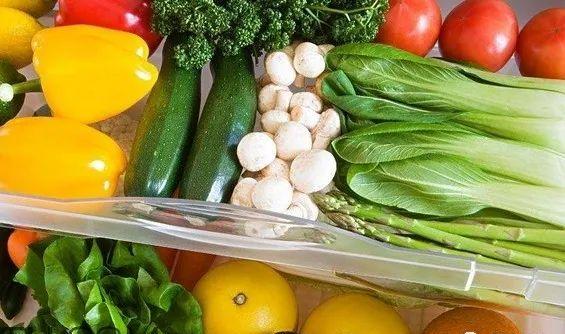During the Spring Festival, every household will hoard New Year goods, beef, sheep, pork, milk, dried fruits... Many people put these ingredients in the refrigerator, thinking that they can ensure the freshness of the ingredients and preserve the nutrition of the ingredients, which is very "safe". Refrigerators are not "safes", and the foods you put in have their own shelf life. Once stored for too long, the flavor, texture and nutrition of the food will change, and it is very likely that it will eventually spoil.

Different foods have different shelf life
How long can different foods be stored in the refrigerator? The Shaanxi Provincial Center for Disease Control and Prevention said that if there are clear storage conditions and storage time on the product packaging, the packaging instructions shall prevail.
For foods without relevant packaging instructions, the principle that different foods have different shelf life should also be followed. Livestock and poultry meat and egg products are not easy to preserve. Air-dried beef, bacon, plated duck, dachshund, and salted duck eggs and pine blossom eggs can be stored for a long time, but as a marinated or processed food, it is not recommended to store as a healthy food for a long time. Chilled aquatic products, it is recommended that small packages are sealed and frozen quick-frozen, and they need to be thoroughly heated and cooked when eating.
For fruits, "ripe" fruits, such as grapes, apples, strawberries, etc., are best packed into a plastic bag to prevent water loss, and then refrigerated in the refrigerator. "Post-ripening" fruits, including kiwifruit, bananas, avocados, etc., must be placed at room temperature to continue to ripen.
In addition, do not wash the green leafy vegetables with water before putting them in the refrigerator, and put them directly into the plastic bag with holes and put them in the refrigerator. Do not stick to the inner wall of the refrigerator to avoid frostbite. Rhizome vegetables, such as lotus roots, bamboo shoots, onions, etc., can be placed in the refrigerator refrigerator. Potatoes, sweet potatoes, carrots, white radishes, etc., can be placed in a ventilated and cool place.
Sauce seasonings also need to be refrigerated
Condiments can be said to be the gold medal supporting role in the kitchen, whether it is a luxurious meal or a home-cooked stir-fry, if you want to make a taste, you can't do without condiments. Many people are accustomed to placing condiments next to the stove for easy access at any time. However, it should be noted that some condiments also need to be refrigerated and stored.
The first is fermentation condiments. Condiments such as soybean paste and curd milk are produced by the fermentation of microorganisms, and the microorganisms in them cannot be guaranteed to be completely inactivated when they are sold. Therefore, if it is not refrigerated after opening, it is likely to accelerate the growth of microorganisms at room temperature and spoil the condiment.
The second is condiments with high nutrient content and more water content. Such as salad dressing, oyster sauce and other protein content is high, and contains a certain amount of moisture. These condiments can provide nutrients and moisture to mold, if stored at room temperature, it is very likely to become a breeding ground for mold, resulting in mildew. Food mold may produce carcinogenic mycotoxins, which can endanger human health if consumed. Condiments containing higher fats, such as chili sauce, may oxidize fat at room temperature, affecting flavor.
In general, the preservation method of condiments is determined by their type, and not all condiments need to be refrigerated. Powder condiments such as pepper, or condiments with high salt content such as salt and soy sauce, are relatively less likely to breed bacteria or deteriorate, so they do not need to be stored in the refrigerator.
How to maintain the recommended storage time for the best quality and safety under different storage conditions for different types of food? Let's take a look at the specific storage conditions:
Meat, poultry, fish and eggs
Milk and dairy products
fruit
vegetable
Staple food or dry goods
Seasonings, sauces and canned food
Baked goods
The article comes from the People's Daily News